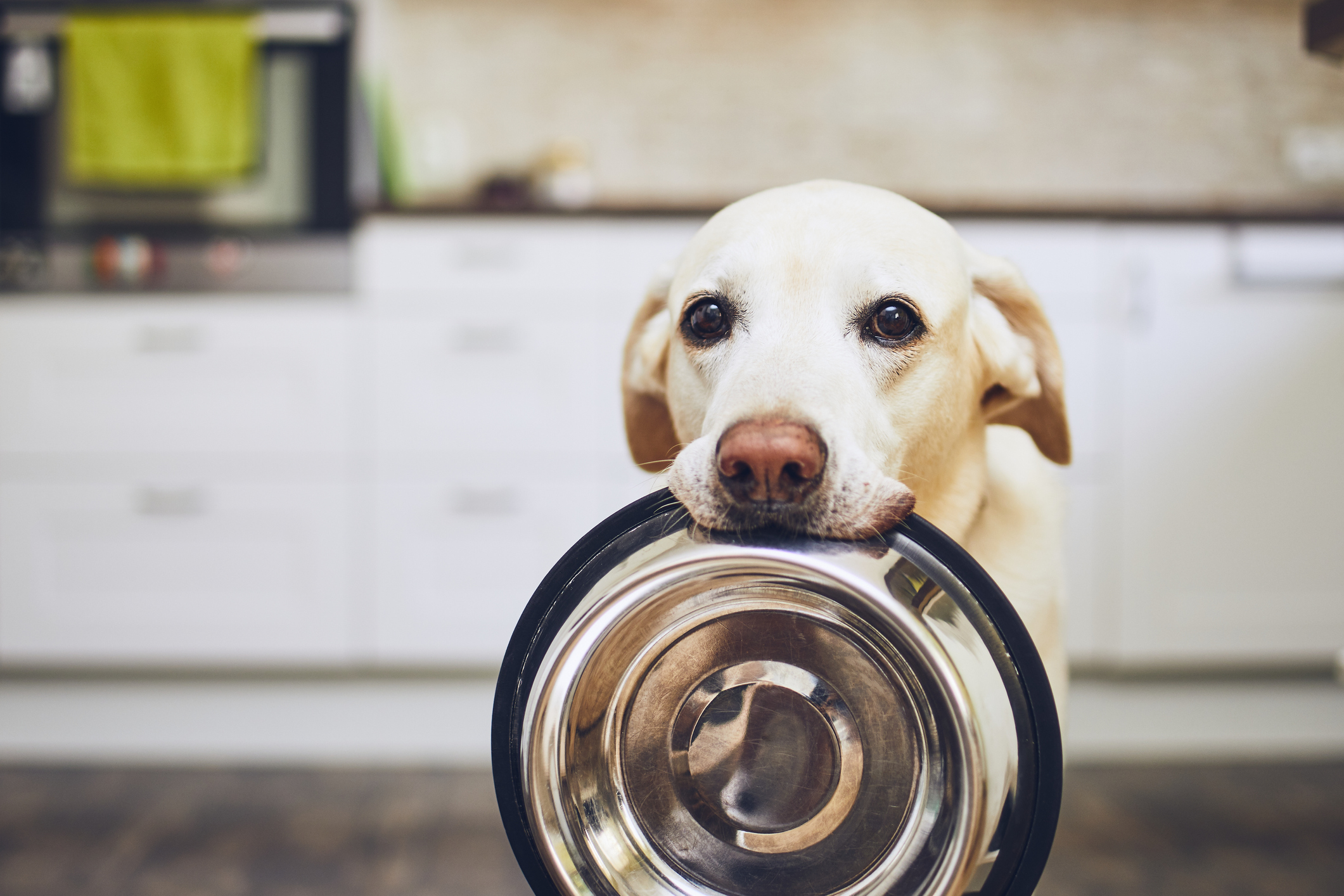
Is Your Whiny Dog Just Seeking Attention or Is it Something More?
Most dog owners are familiar with the sound of a whining dog. After being placed in a kennel for the workday, when sitting under the table begging for scraps or while waiting to go outside to do their business—dogs tend to whine for attention or because they need something. Because of this, dog owners might begin to ignore or block out the noise rather than give in to it.
However, dogs don’t only whine when they are looking for attention from their owners. There are some more serious causes of whining, as well, that owners should be cautious of. By paying attention to when your dog whines, you’ll be able to better determine what the cause is and put a stop to it in the most appropriate way.
Whining for attention
In many cases, dogs learn to whine as a way to get attention from people. The high-pitched, sad-sounding cry might pull at some heart strings, resulting in an extra table scrap, more food, access to a blocked-off area of the home and more. If your dog learns that whining is the ticket to getting what it wants, this behavioral habit can be difficult to break.
Observe when your dog whines. Do they begin to whine when “people food” is just out of reach or when the treat bag goes away? Or are the whines tied to a legitimate need, like having to go outside to pee? If it’s the former, you’ll want to ensure that you don’t feed into the behavior by rewarding it.
 In general, the strategy to mitigating attention-seeking whining is to avoid giving any attention at all. Even minor things like eye contact, petting or scolding can reinforce the behavior because your dog will be getting the attention they seek. Instead, you’ll need to ignore the dog completely, turning away and avoiding any sort of interaction to teach them that staying quiet is a better way to get what they want. When your pup quiets down, then you can give them a reward, such as a treat or playtime.
In general, the strategy to mitigating attention-seeking whining is to avoid giving any attention at all. Even minor things like eye contact, petting or scolding can reinforce the behavior because your dog will be getting the attention they seek. Instead, you’ll need to ignore the dog completely, turning away and avoiding any sort of interaction to teach them that staying quiet is a better way to get what they want. When your pup quiets down, then you can give them a reward, such as a treat or playtime.
Sometimes, stopping attention-seeking whining is next to impossible on your own. In that case, you may want to seek the help of a professional trainer to help modify the behavior.
Whining from anxiety disorders
Aside from attention seeking, another reason dogs might whine is because they are feeling extremely anxious. Much like whimpering, dogs experiencing the effects of an anxiety disorder may begin to whine to communicate their fear.
In some cases, anxiety-related whining will only begin during particularly stressful events like fireworks. Avoiding these stress triggers can help prevent your dog from whining.
Unfortunately, whining may also be tied to more serious anxiety problems like separation anxiety. In these cases, any time your pup feels alone or is scared you will leave them, they might start to whine.

Observing your pup’s behavior when they start to whine can help you determine whether anxiety is the problem at hand. Many other symptoms may be present with separation anxiety, including destruction, escape attempts, pacing, drooling, panting and depression or lethargy. If you observe these behaviors, you’ll need to take a different approach to mitigating your pup’s whining. Ignoring the whining like you would with attention-seeking behavior could make your dog’s anxiety even worse.
In many cases, behavioral therapy and counterconditioning will be required; these processes aren’t always quick, and it may take between a few weeks and a few months to help your dog remain calm when you leave the home.
Whining from injury
Another cause of whining that is drastically different from the others is the presence of a physical injury. If your dog gets hurt somehow—whether from a bite, a fall or another cause—moving around may be painful, causing them to whine and cry.
Often, this whining will be triggered by a particular kind of movement and might be accompanied by symptoms like limping, unwillingness to walk or play, stumbling or other changes in mobility and behavior.
If you notice these things, you should absolutely not ignore your pup’s whining—they need your help to heal! Give your dog a thorough physical check to see if you can identify the source of the problem. It might be a small injury you can treat at home, but if you can’t find it or it’s too large for you to handle on your own, you’ll want to visit the vet for treatment. After your dog is on the mend, their whining should stop!
Pay attention to the clues
Because dogs can’t speak like humans can, we need to be tuned in to the other signs our pets give us that something is wrong, they want something or they’re feeling distressed. By observing other signs your pet exhibits while whining, you’ll be able to more easily find the cause and provide the appropriate reaction. And, when in doubt, you can always call your vet to get their advice based on your observations.
In time, with the right reactions, your pup’s whining should come to a stop and provide you and your pup some peace!


